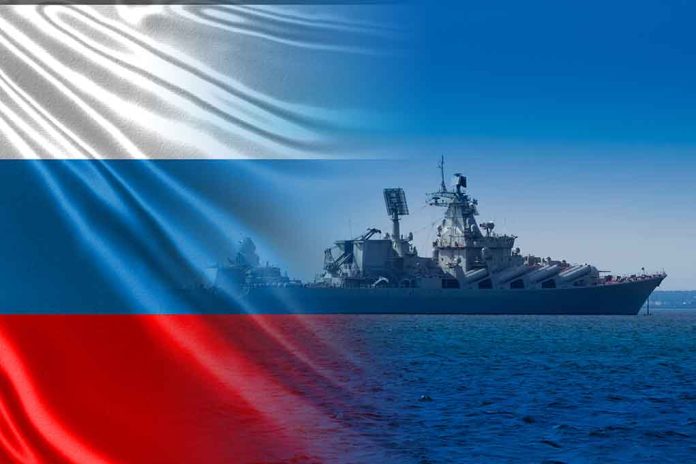
Changes in the Syrian civil war suggest the possibility of a Russian Navy withdrawal from Tartus, raising questions about Mediterranean power dynamics.
At a Glance
- Opposition forces advance in Syria, threatening Russia’s strategic Tartus base.
- Significant Russian naval assets reportedly depart from the port of Tartus.
- The withdrawal may weaken Russia’s influence in the Mediterranean region.
- The loss of Aleppo signals vulnerabilities in Russia’s Syrian strategy.
Russian Presence in Syria Under Threat
As opposition forces spearheaded by Hayat Tahrir al-Sham (HTS) advance, the strategic city of Aleppo falls partially into rebel hands, marking the first time since 2016 this has happened. This military shift places direct pressure on Russia’s operations, including its vital naval base in Tartus. Russia’s initial 2016 victory in Aleppo, once symbolizing its firm foothold in Syria, now sees a mounting threat as reports indicate the navy’s frigates and submarines departing the area.
Structural weaknesses in the defenses of the Assad regime have become evident amidst these developments. Both Russian and Syrian forces intensify their aerial bombardments on rebel positions, yet the urgency of the situation is underscored by Syrian military’s need to reinforce their defensive lines, a strategy emphasized by their defense ministry as the Syrian government grapples to regain control.
#BREAKING Russia appears to be evacuating its naval assets from Syria’s Tartus port, a strategic military base on the Mediterranean.
On December 2, 2024, the Russian auxiliary ship Yelnya left Tartus, with reports of two frigates, an auxiliary, and a submarine also departing.… pic.twitter.com/4BpsribVcS
— Clash Report (@clashreport) December 3, 2024
Signs of Naval Withdrawal Emerge
Recent observations reveal Russian naval assets began leaving Tartus, adding weight to speculations of a strategic withdrawal, which could significantly alter local power structures. The naval base at Tartus has been elemental for supporting Assad’s regime and leveraging Russian presence against NATO operations. Its potential loss, alongside the advancement of rebel forces into strategic locations like Aleppo and Hama, indicates a declining Russian influence in the region.
The ongoing conflict threatens Russia’s capacity to maintain its once pivotal stronghold in the Mediterranean. The evacuation might reflect a precautionary approach as Russian operational constraints surface, highlighting the tactical limitations imposed by recent military developments. The joint efforts by Russian-Syrian forces, although intensified, find themselves competing against the shifting territorial tides.
The war is reaching a new stage. Looks like the US is directly destabilizing Russia's proxies and removing its influence in strategic areas. Russia operates a naval base in Tartus, Syria and airbases around Latakia. They, of course, have helped prop Assad up for years, with… https://t.co/VJrN2wFTT0
— Quantus Insights (@QuantusInsights) November 30, 2024
Implications of a Changed Power Dynamic
The unfolding scenario presents a dual challenge for Russia, with its ambitious global aspirations overshadowed by the local realities of the Syrian conflict. Should the departures from Tartus solidify into a broader withdrawal, NATO could capitalize on reduced Russian leverage to fortify its Mediterranean presence. As regional dynamics transform, there remains a need to address broader security concerns, considering the UN’s warning of severe risks implicating international peace.
The potential recalibration of power, driven by military realities and strategic necessities, will likely draw responses from global powers invested in the Mediterranean’s future. For Russia, adapting to these changes will demand navigating delicate alliances and reasserting influence, lest its strategic ambitions be thwarted by a rapidly evolving Syrian theater.
Sources:
- https://www.bbc.com/news/articles/czr7rkzz2gmo
- https://foreignpolicy.com/2024/12/02/syria-aleppo-russia-hts-hezbollah-iran/?tpcc=recirc_latest062921
- https://www.navalnews.com/naval-news/2024/12/first-sign-russian-navy-evacuating-naval-vessels-from-tartus-syria/










